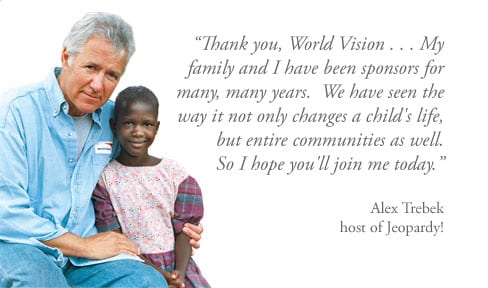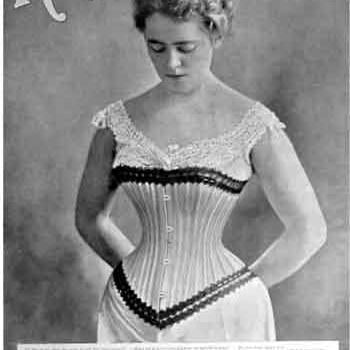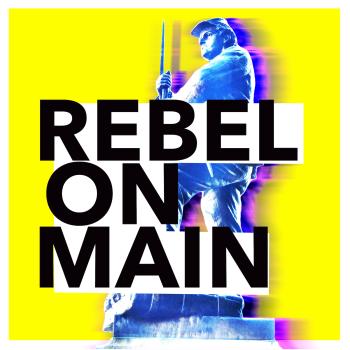Alex Trebek, the suave Canadian host of the television quiz show Jeopardy!, returned to television this week. Having been diagnosed with Stage Four pancreatic cancer in February, he is completed with chemotherapy and is looking good.
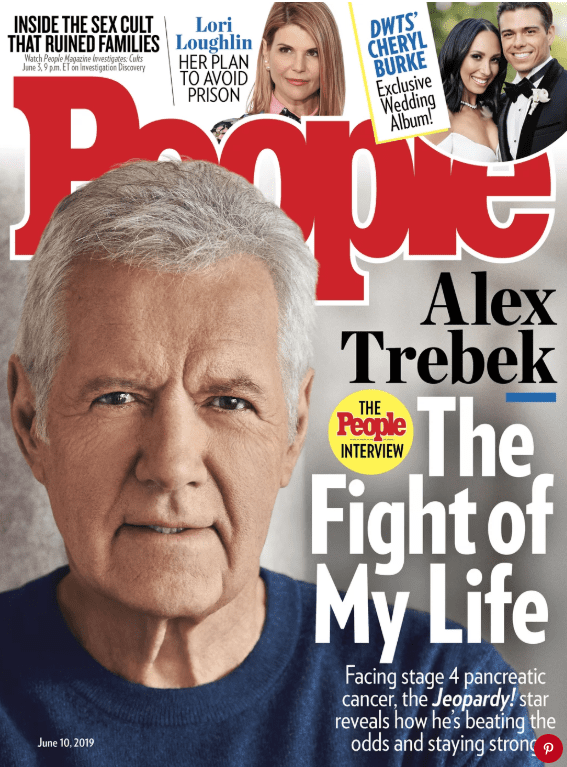 Sadly, the odds are still not in his favor. According to medical experts, the one-year survival rate of all stages combined is only 20 percent. It drops to seven percent for five years. But Trebek remains optimistic, saying “I’m going to fight this and I’m going to keep working, keep the faith and we’ll win. We’ll get it done.”
Sadly, the odds are still not in his favor. According to medical experts, the one-year survival rate of all stages combined is only 20 percent. It drops to seven percent for five years. But Trebek remains optimistic, saying “I’m going to fight this and I’m going to keep working, keep the faith and we’ll win. We’ll get it done.”
“Keep the faith” can mean a lot of things. Is this a case of a Hollywood celebrity unthinkingly using religious language at a vulnerable moment in life? Or does Trebek’s spiritual biography suggest something substantial behind these comments?
Trebek, now 78, grew up Catholic in Canada. At a Pennsylvania gubernatorial debate last year in October he moderated between Tom Wolf and Scott Wagner, he described attending a Catholic boarding school run by the Oblates of Mary Immaculate. Going off script during the debate, he riffed on the state of the Catholic Church. Joking that the only institution with lower approval ratings than the Pennsylvania Legislature was the Catholic Church, he continued amidst boos from the audience. “Two-hundred and fifty students, other boys and I, spent three years sharing the same accommodations 24/7 with 44 priests and not once in those three years was there any sexual misbehavior. Now boys are pretty sharp, we talk, we would have known. So I believe that there are Catholic priests out there who are able to minister to their congregations without preying – that’s P-R-E-Y – on the young people.”
But Trebek, who apparently does not attend mass regularly, was also sharply critical. “I was born and raised in the Catholic Church and I’m just as ticked off as everybody else is over what has happened with the church.” Asked elsewhere what he would ask the Pope as a talk-show guest, he answered, “Why aren’t you making more changes in the Catholic Church?” He then spoke in favor of women priests and married priests. In sum, he appears to nurture high interest and low commitment toward the Catholic Church.
Trebek also has maintained some evangelical connections. Beginning in the 1980s, he volunteered for the humanitarian aid organization World Vision. According to one publicity video, Trebek has quietly appeared in more than 40 television shows and traveled over one million miles on behalf of World Vision. He has not been outspoken about any evangelical leanings, but he has clearly been comfortable with the association. Some conservative evangelicals though, wanting to claim him, have contended that media moguls at CBS and NBC have edited out or ignored comments Trebek has made about prayers helping his recovery. If these conservative media watchdogs are right, perhaps he is more evangelical than we know.
But they probably aren’t right, given Trebek’s other significant religious association. Jean Trebek, his wife, is an active member of the North Hollywood Church of Religious Science, a church born out of the New Thought movement of the 1920s. According to one description, Religious Science teaches that the “individual human mind is an expression of the Universal Mind, and the universe is its material manifestation. Man and nature are, therefore, like the God who is their true being, considered to be fundamentally good, and apparent evil stems from ignorance of the highest identity.” Trebek himself does not appear to be all in on this heterodox tradition, but he does participate on the periphery. Church friends, he has said, are at the center of his social life, and Jean Trebek is president of the board of trustees at the church and is deeply involved in worship activities. On January 11, 2017, for example, she helped lead a Wednesday Evening Taize Service, starting it with a “singing bowl meditation.”
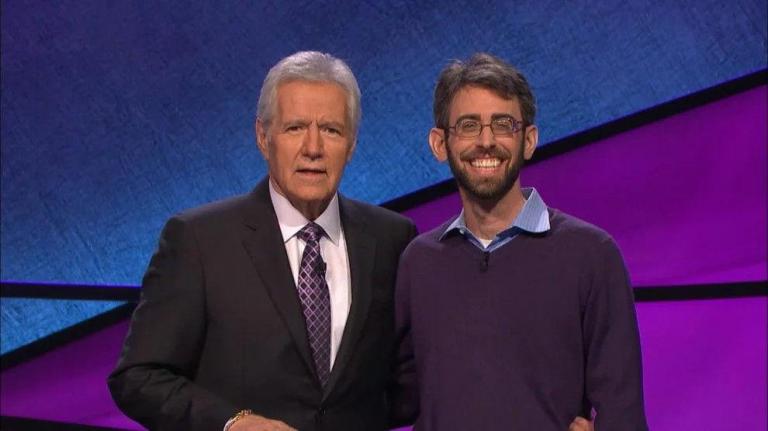
Jeopardy! fans also inhabit many religious spaces, a reality that became apparent when Trebek announced his illness. Former 2016 contestant Geoffrey Mitelman, a Reform Jewish rabbi from New York, said, “Alex said he wanted prayers, so let’s see what we can do.” According to a Religious News Service story, the rabbi organized a digital interfaith prayer service on Trebek’s behalf that took place on March 13. Including more than 100 faith leaders who were Orthodox Jews, Methodists, Lutherans, Presbyterians and Episcopalians, the service included a prayer from the United Methodist Book of Worship. Mitelman explained, “My prayer is one that I’ve used a lot, and that is, to have strength for today and hope for tomorrow because it’s going to be a very difficult road for him. He needs to be able to find the strength he needs physically, the strength he needs emotionally and the strength he needs spiritually,” he said. “And, to know how many thousands of contestants love him, and viewers love him.” Afterward, Mitelman sent Trebek a Zoom recording of the service.
Trebek returned the love, crediting his fans for his recovery. “I’ve got a couple million people out there who have expressed their good thoughts, their positive energy directed towards me and their prayers,” he said. “I told the doctors, this has to be more than just the chemo, and they agreed it could very well be an important part of this.”
So what’s the answer to the question I posed at the beginning of this post? Is Trebek’s religious language just a public relations gambit? I don’t think so. Trebek seems too fascinated by religion. He clearly cares about the future of Catholicism, even though he doesn’t seem to be a terribly faithful Catholic himself. There’s no mistaking Trebek for being Mormon, but he and former contestant Ken Jennings fluently discussed topics ranging from tithing and Mormon dietary taboos on-air. He invested heavily in World Vision, though he never publicized these philanthropic activities. Perhaps he is just a complicated person who can’t be easily defined. Perhaps as Jennings said of Trebek, he is just “a riddle wrapped in an enigma wrapped in a Perry Ellis suit.”
There is another possibility that coheres all these disparate associations. Trebek’s spiritual biography may suggest that he is a practitioner of some combination of SBNA (“spiritual but not affiliated”) and MTD (“moralistic therapeutic deism”). A term introduced by Christian Smith in his book Soul Searching, MTD proposes the following theological features:
- A God exists who created and ordered the world and watches over human life on earth.
- God wants people to be good, nice, and fair to each other, as taught in the Bible and by most world religions.
- The central goal of life is to be happy and to feel good about oneself.
- God does not need to be particularly involved in one’s life except when God is needed to resolve a problem.
- Good people go to heaven when they die.
These newer religious streams might make sense of his many religious participations, his refusal to be defined by a single religious tradition, and his eagerness to dabble, potluck-style, in many practices of piety. Critics say that SBNA and MTD result in an insipid, shallow piety that emerges only when something is needed from the divine. But as they emerge as more dominant American religious sensibilities, critics must also acknowledge a kind of coherence as they transform from heterodoxy into their own orthodoxy.
But this may not be the end of Trebek’s faith journey. Brushes with death sometimes have a clarifying effect on religious belief and practice. In his cancer announcement, he joked with characteristic urbanity and control, “I plan to beat the low survival rate statistics for this disease,” he said. “Truth told, I have to. Because under the terms of my contract, I have to host Jeopardy for three more years.” Trebek, however, has also confessed to profound weakness and vulnerability. Cutting through the Hollywood veneer, he describes “sudden surges of deep, deep sadness.” In this last phase of life, it is possible that MTD is not ultimately satisfying, that Trebek’s faith takes yet another turn in a winding journey that is revealed to the rest of us only at his funeral.


